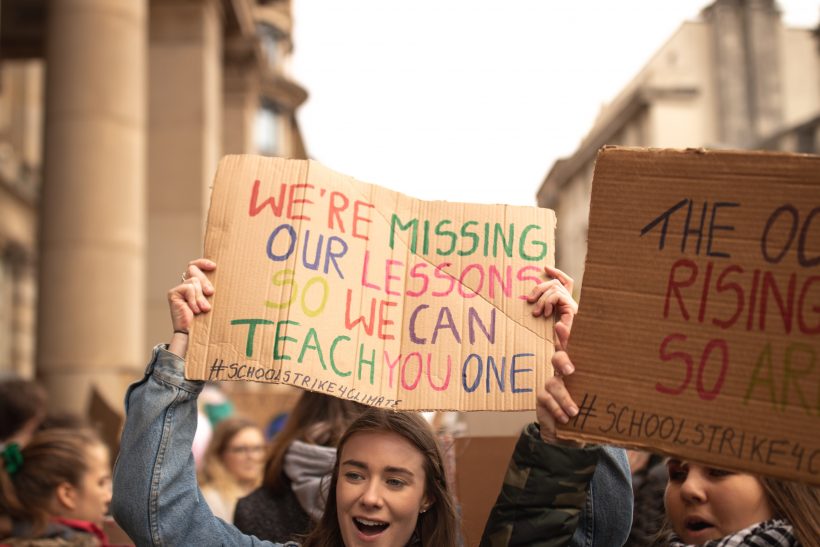Common App #4 Is New and Gratitude Never Gets Old With the addition of the new Common App Prompt #4, students are encouraged to find something positive in their lives they can reflect on-- and this is a good thing. The prompt reads: “Reflect on something that someone has done for you that has made you happy or thankful in a surprising way. How has this gratitude affected or motivated you?” The Common App website even links to Angela Duckworth’s Character Lab where you can learn more about why science is giving a big thumbs up to gratitude and kindness practices. But just because it's certified as good for you, doesn't mean it necessarily leads to good writing. This is where a little guidance and some examples can go a long way. Continue Reading …
writing prompts
Apologies Accepted
This week I had the privilege to write for Romper about my 5 year old son apologizing to me for 2+ years of his mom-direct anger. His words stopped me in my tracks. Reflecting on his gesture made me ask lots of questions. At what age can kids apologize, and mean it? When do we (adults, grown ups) owe them an apology? What does rupture and repair look like in families? I turn these questions over to you with a bunch of other questions attached like barnacles. Continue Reading …
Reject Authority, Build Autonomy
My 7th grade class is full of "good" kids. In fact, you might even call them the "best" kids-- if you believed in ranking children. These are the kids that did all their math worksheets without being asked. The kids that were reading with a flashlight by kindergarten. The kids whose immigrant parents told them every day that if they came home with less than an A, they were going to hear about it, and so was everyone on the block. The slipper was going to come out. The Best Education Money can Buy Can't Also Buy you Autonomy These kids have already gotten far. By the 6th grade, they were accepted into TEAK Fellowship, which until 2019 accepted only 30 kids out of hundreds of applicants, to prime them for the best education money could buy. But in their case, the education would be free. It was an attempt to level the playing field, and put them in the circles where they belonged by their own merit. But what to do when-- because of your age, stage and developing personhood-- your whole body is telling you you need to strike out on your own, take risks, be autonomous? And yet, here you are, in a Fellowship, in Family Systems, that expect a lot from you? What's rebelling against authority worth? In their blood and bones, my kids understand what it is to rebel against authority. They may have read a lot about it, but most have never done it. That doesn't mean they don't know what it would taste like. Fizzzzzzzzzz and fire. They might know-- ancestrally, or because of the circles of oppression which they and their families navigate- what it means to have a colonizer breathing down your neck, making you pay at every turn for...for what? They might know what it means to not be represented in a governing body. To have people speak for you who know nothing about you, and can't handle your hair. To see that the dominant system does not have your best interests at heart, nor is able to pronounce (or remember) your last name. Gomez or Gonzalez? Continue Reading …
Stubbing your toe, and getting past The Obvious
I broke my pinky toe this week. What I stubbed it on should have been obvious. I mean, a plastic tub of legos, taking up half the hallway? That my three year-old left there, during his righteous fit? What's more obvious? That's why I don't have a good story to tell you, which is annoying. Pay Attention--starting with the obvious! But my attention was elsewhere. It was past 9PM, and I was on my own righteous mission: to get my older kids to clean up after themselves in the kitchen while the baby meowed from the bedroom. (The three year old harumph-ed along beside me to chide his big brothers.) The minute I felt my toe make contact, I knew I had broken it. Your brain gains a momentary crater where it used to sense a comfortably in-tact body part. In my intero-ception, the damage was obvious. WHAT HAPPENED?, the three year old alarmist said, when he heard my expletives reserved for those choice toe moments. I BROKE MY TOE ON YOUR LEGOS! I half-yelled, because the obvious works better in ALL CAPS. The thing is, when you stub or break your toe, it's almost always on something that's right in front of your face, and could have been avoided. It's not like the walls switch around their location to mess with you and bait your appendages (except in Alice in Wonderland. Or when you're chronically exhausted). Look at the story you're telling yourself... From the site of injury, I started building a story-- sound familiar? "Tomorrow is going to suck...so is the next day...Why did I not put that away?" I also thought: dang, this would be a lot more acceptable if I had a good story to tell. Then I realized, a good story can start with the obvious, it just can't stop there. Moving beyond what's obvious What if I looked more closely at why we don't do what we know we should? Or examined the structure of the foot, the function of toes? What if I wrote about the evolution of emotion, studied my three-year old? The fits he has over things the Continue Reading …
Everything That Happens to You & Prompts
My writing students complained the other day about certain canned responses to their disappointments: Well-meaning folks assured them, "Everything that happens to you is for a reason!" I asked them to raise hands if they agreed or not with this statement. 75% said they disagreed. I'm their writing teacher, and find cliches born of other people's discomfort with our discomfort hard to stomach too. But I suggested a revision: what if you said to them (and yourself), "Everything that happens to you...is for art?" A common problem: Where can I say how I really feel? At a seder this weekend, an older female guest in a glow-worm white jacket confided in me, "We're about to lose our family home. My husband got forced out of his work two years ago. I'm so sad--'" she lowered her voice, "but no one really wants to hear about it." I am always interested in what's really going on for people, and as a result, even strangers often open up for me. I felt for her, what felt like losing her roots. And she was right: it was hard to elicit the empathy she really needed. Much worse things were happening to people everywhere...but so what? This was her grief. She should be able to find an ear for it. My philosophy: Everything That Happens to You Has a Home in Your Art I couldn't tell her this, then, nor did I know if she ever wrote, but we could say: Every single thing that happens to you has a home in your art. That annoying comment your teacher made about your test. That t-shirt you won at the fair. The way your mom looks at you when you get home late. The family home you lost. The cough that wouldn't go away. The school you didn't get into. The kid you hope to have. It doesn't matter what it is: art can handle it. Art will hold it. Art gives you a place to hold it and understand it. In my intro to personal essay class, "Word UP," I ask my students to call out, "Thank you, Life, for giving me my material!" It's goofy but accurate and it never hurts to be Continue Reading …
Reverence
For what do you feel reverence? Maybe even total and unmitigated reverence? This morning, I read a poem by Major Jackson which began with this line: "I thought by now my reverence would have waned/..." (If you don't already subscribe to poem-a-day, why? You can do it right here. Tracy K Smith, Poe-La of USA, is curating April.) The poem goes on..."the unrestrained/ joy I feel when a black skein of geese voyages like a dropped/ string from God, slowly shifting and soaring, when the decayed/ apples of an orchard amass beneath its trees like Eve's first party..." (O these phrases: Dropped string from God! Eve's First Party! And the catch-breath of the line break!) I feel reverence for the perfect over-brewed bittersweet cup of Jasmine tea, the kind any connoisseur would gag on. (Of course I googled how to spell "connoisseur." But now I feel reverence for those who can spell it correctly without googling). What is exhilarating to me, might be boring to you, and so too the reverse. Writing with this Jasmine tea beside me is like having a harsh and loving editor on hand-- one who both assures you you are awesome and you can do anything, and cuts out everything that is not that from your page. The tea is also a vitalizing force (YOU CALL IT CAFFEINE, I call it magic), a rich earth brown. It also connects me to a many cultures across the world where tea is taken Very Seriously. (One look at our gas station tea bag selection--with brand names like Bigelow, which reminds me of middle school jokes about, well-- things middle schoolers make jokes about-- tells you America is not one of those cultures that reveres tea generally.) Many good writing teachers have issued a caveat that you should not build a dependency between your creativity and any beverage (it's a crutch and potential obstacle). BUT I SAY, HAVE YOU HAD THIS PARTICULAR CUP? And also I have such reverence for the sunrise stabbing between buildings on my city block, and the Continue Reading …





